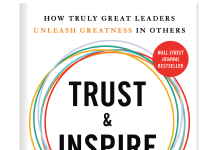This is not your typical article about Millennials, who now make up nearly a quarter of the U.S. population and 36 percent of the workforce. I believe if you’re not hiring, promoting, and integrating Millennials into your workforce, your company is at a competitive disadvantage to companies, like mine, that realize their true value.
Since I launched Division-D (formerly 3 Interactive), an online media buying and digital advertising company, out of my bedroom in 2003, we’ve grown to more than $15 million in revenue. We are one of the fastest-growing companies in the United States, and we’ve done that with Millennials making up 94 percent of our workforce—including four vice presidents and one in our C-suite. They are uniquely adapted to engaging and thriving in today’s digital business world.
To be clear, I am a Generation Xer who loves Generation Y. We purposely seek Millennials—recruiting them and begging them to work for us. We pay them well because they perform and thrive in our demanding environment. In turn, they do amazing work for us.
But at the same time, I can admit: Sometimes Millennials drive me nuts. Daily, my Millennial staffers do something that makes me say, “Are you kidding me?” I’ve had members of my team:
- Show up barefoot to work.
- Rent a limo on a business trip.
- Respond “Eh, sometimes” when I asked if they like their job.
Where does this weird behavior come from? Millennials grew up with different cultural experiences then Generations Xers and our Baby Boomer parents. Millennials experienced more prosperity, education, and opportunities, and fewer difficulties than any generation before them. They behave differently than you and I did when we entered the workforce. That means they also have a different set of priorities.
So how has Division-D been so successful with a Millennial workforce? My take on this generation may be far different than the stories and stereotypes you’ve heard from other business leaders and reporters. Here are few reasons Millennials should be a critical part of your company’s growth and success:
1. They are uniquely adapted to thrive in the modern, connected world. Millennials grew up in a time when technology and the economy changed faster than any other time in history. Since they were children, they have evolved with new gadgets, as well as new ways of interacting, working, and consuming information. More importantly, they learned to use and adapt to these new paradigms. They’ve adapted to the introduction of the Internet; figured out how to digest limitless content; transitioned to new platforms such as tablet and mobile; and jumped into social media, moving from MySpace to Facebook to Twitter to Instagram. Their experiences programed them to change at speeds that seem frightening to other generations. This ability to adapt to technology makes them invaluable. The business world constantly is being disrupted by new technology, and you need employees who can eat disruption for breakfast. That’s what my employees do—and that’s helped us grow quickly in the competitive digital advertising industry. Millennials are unfazed by new technology or the fast-paced strategic changes your business needs to make because of those new technologies. They learn these new technologies and quickly identify creative ways to adapt it to individual, client and company needs.
2. Millennials want a different work environment (and maybe we should give them one!). If you want to get the most of what this generation has to offer, you need to focus on what’s important to them and not get distracted by the superficial. It may seem strange to our generation, but forget about suits, the traditional 9-5 workday, morbid seriousness in the office, dictatorial management, or how you should talk to your boss. Millennials, on the whole, just don’t believe in those traditions, and they won’t live up to them. But those old rules overshadow what’s really important: the quality of the work they do and their contributions to the new economy.
Let’s be honest, who cares if you wear loafers or flip-flops, a three-piece suit or jeans and a Star Wars T-shirt. Would you rather have someone begrudgingly start at 9 and punch out at 5 or someone happily start at 9:30 and stop when the job is done? That’s what the engaged Millennials who work for me do well. My office became a better place when I stopped caring about the little stuff and what an office “should” be like. The freedom made our Millennials happier, and it allowed me to focus on the big picture. Stress went down. Morale went up—and so did our profits. I found that my employees respected me more because they knew I cared about what really mattered to them and cut away all the “BS” that got in their way.
3. Millennials need more than a BMW and 5,000 square feet to feel successful. Millennials judge success at the early stage of their careers much differentially than you and I did. Making six figures or having a nice car and a big house is much less important to individual happiness. They would rather make less as long as they like the place where they work and they can be proud of what they do. Money and possessions don’t matter as much. That’s not to say they don’t want money—we all do. They want to make enough so they don’t have to worry about making ends meet. But they find more value in the other aspects of their work life. They want to be part of something bigger. They want challenges. And they want to make their world a better place. It might seem unrealistic, but most Millennials I meet would say they’re idealists—and I would agree. It’s a refreshing quality in a business environment full of realists.
Without the contributions of our Millennials, Division-D wouldn’t be the success it is today—certainly not one of the fastest-growing companies in the country. I hope that our employees have learned as much from me as I have learned from them. If you’re willing to listen to what they need to succeed and do a little adapting of your own, your company will be successful, too.
A successful entrepreneur with a deep understanding of how to monetize emerging digital markets, Bobby Campbell is the founder of several leading digital media companies, including AdKarma and Division-D (formerly 3 Interactive). Since 2003, Division-D has grown to generate $15 million in annual revenue and was named one of Inc. Magazine’s fastest growing private companies in 2012.




